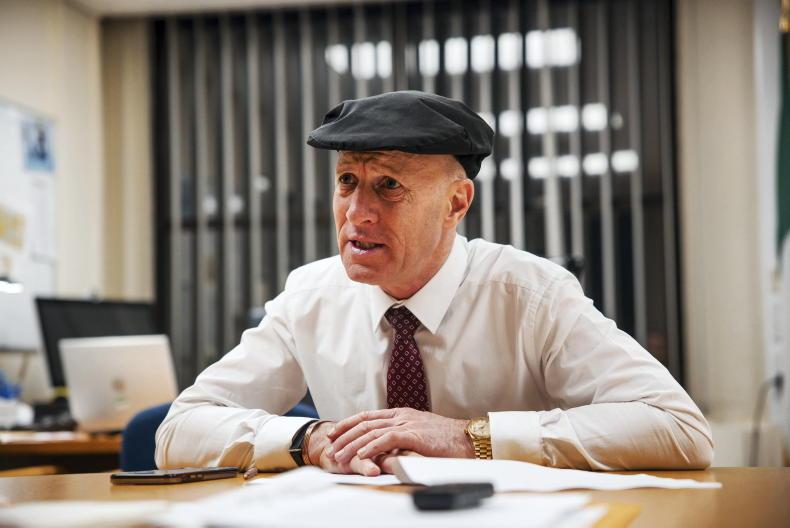Minister of State for Agriculture Andrew Doyle has announced a new Woodland Environmental Fund (WEF) connecting private business with landowners willing to plant native trees.
Although planting of native woodlands has increased from a very low base in recent years, conifers account for 80% of new forestry, raising concerns about the social and environmental effect of such monoculture in some areas and compliance with EU obligations.
Corporate social responsibility
The scheme will collect funding from companies interested in supporting the establishment of native woodlands under their corporate social responsibility programmes.
Participating businesses will pay landowners a once-off €1,000/ha in addition to existing Government support under the afforestation programme.
"Businesses can be associated with individual native woodlands and use the environmental benefits linked to these forests to demonstrate that they are meeting their corporate social responsibilities," Minister Doyle said.
"These forests will become a long-lasting feature of the landscape, providing environmental benefits on an ongoing basis and adding colour and diversity to an area that can be enjoyed by local people and visitors alike."
Eligible species are those supported under existing Government schemes, with oak, alder and birch the most popular.
Fifteen-year association
Farmers and other landowners who receive business support through the Woodland Environmental Fund must allow their sponsor to access information about their forest for 15 years. This includes the measurement of environmental benefits such as improvements in water quality or carbon dioxide removed from the atmosphere, which the company supporting the plantation can then use for its promotion.
The sponsor can also display its logo on the site of the plantation.
The owner of the forest remains in possession of its output including timber and any financial gains from carbon capture.
For the sponsor company, "the contribution made to the WEF is not so
much an investment that yields a financial return but is an investment in public goods that
society as a whole can enjoy", the scheme's documents clarify.
No guarantee
Landowners can now express interest in joining the scheme when applying for Government support for native woodlands, but "opting into the scheme does not guarantee payment of a WEF top-up", the Department warned.
The owner of the forest remains in possession of its output including timber and any financial gains from carbon capture
"Until such time as the level of business interest in the initiative becomes clear it is difficult to determine what percentage of landowners planting native woodlands will receive the WEF payment."
Consultants and forestry companies can apply to register as Natural Capital Facilitators, the local intermediaries that will match companies and landowners and measure environmental benefits.
The fund will be evaluated at the end of the current afforestation programme in 2020 to decide on future steps.
Details and application forms are available from the Department's website.
Read more
Tallest trees in Ireland reach 61.3m
From yield class to BioClass
Minister of State for Agriculture Andrew Doyle has announced a new Woodland Environmental Fund (WEF) connecting private business with landowners willing to plant native trees.
Although planting of native woodlands has increased from a very low base in recent years, conifers account for 80% of new forestry, raising concerns about the social and environmental effect of such monoculture in some areas and compliance with EU obligations.
Corporate social responsibility
The scheme will collect funding from companies interested in supporting the establishment of native woodlands under their corporate social responsibility programmes.
Participating businesses will pay landowners a once-off €1,000/ha in addition to existing Government support under the afforestation programme.
"Businesses can be associated with individual native woodlands and use the environmental benefits linked to these forests to demonstrate that they are meeting their corporate social responsibilities," Minister Doyle said.
"These forests will become a long-lasting feature of the landscape, providing environmental benefits on an ongoing basis and adding colour and diversity to an area that can be enjoyed by local people and visitors alike."
Eligible species are those supported under existing Government schemes, with oak, alder and birch the most popular.
Fifteen-year association
Farmers and other landowners who receive business support through the Woodland Environmental Fund must allow their sponsor to access information about their forest for 15 years. This includes the measurement of environmental benefits such as improvements in water quality or carbon dioxide removed from the atmosphere, which the company supporting the plantation can then use for its promotion.
The sponsor can also display its logo on the site of the plantation.
The owner of the forest remains in possession of its output including timber and any financial gains from carbon capture.
For the sponsor company, "the contribution made to the WEF is not so
much an investment that yields a financial return but is an investment in public goods that
society as a whole can enjoy", the scheme's documents clarify.
No guarantee
Landowners can now express interest in joining the scheme when applying for Government support for native woodlands, but "opting into the scheme does not guarantee payment of a WEF top-up", the Department warned.
The owner of the forest remains in possession of its output including timber and any financial gains from carbon capture
"Until such time as the level of business interest in the initiative becomes clear it is difficult to determine what percentage of landowners planting native woodlands will receive the WEF payment."
Consultants and forestry companies can apply to register as Natural Capital Facilitators, the local intermediaries that will match companies and landowners and measure environmental benefits.
The fund will be evaluated at the end of the current afforestation programme in 2020 to decide on future steps.
Details and application forms are available from the Department's website.
Read more
Tallest trees in Ireland reach 61.3m
From yield class to BioClass









SHARING OPTIONS